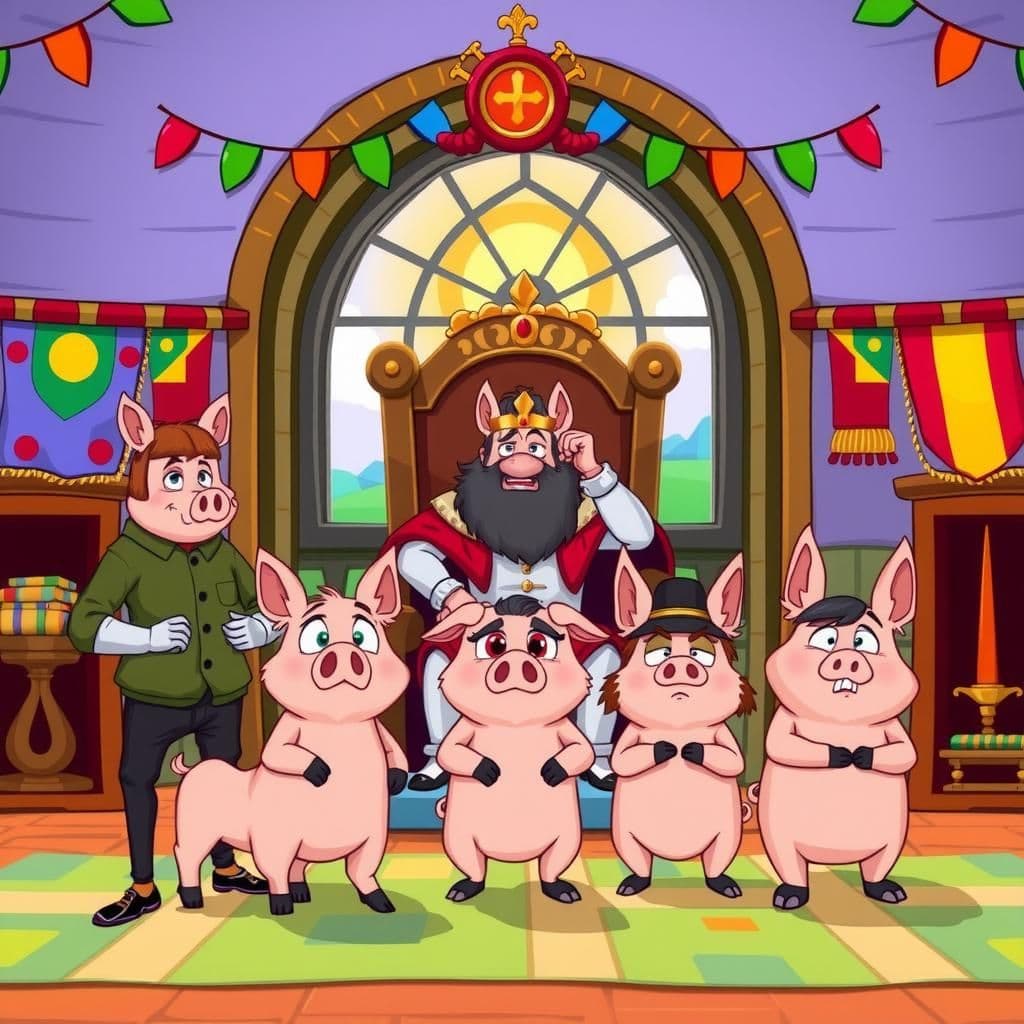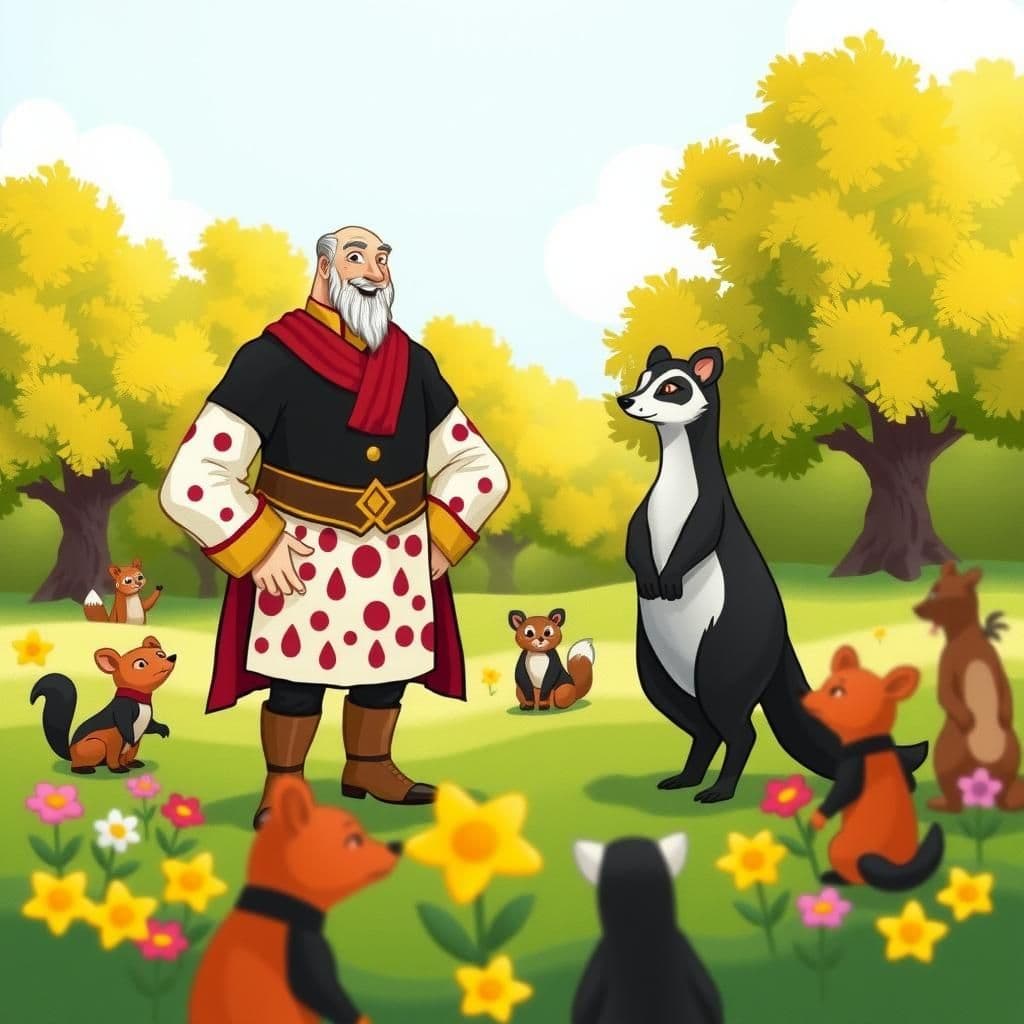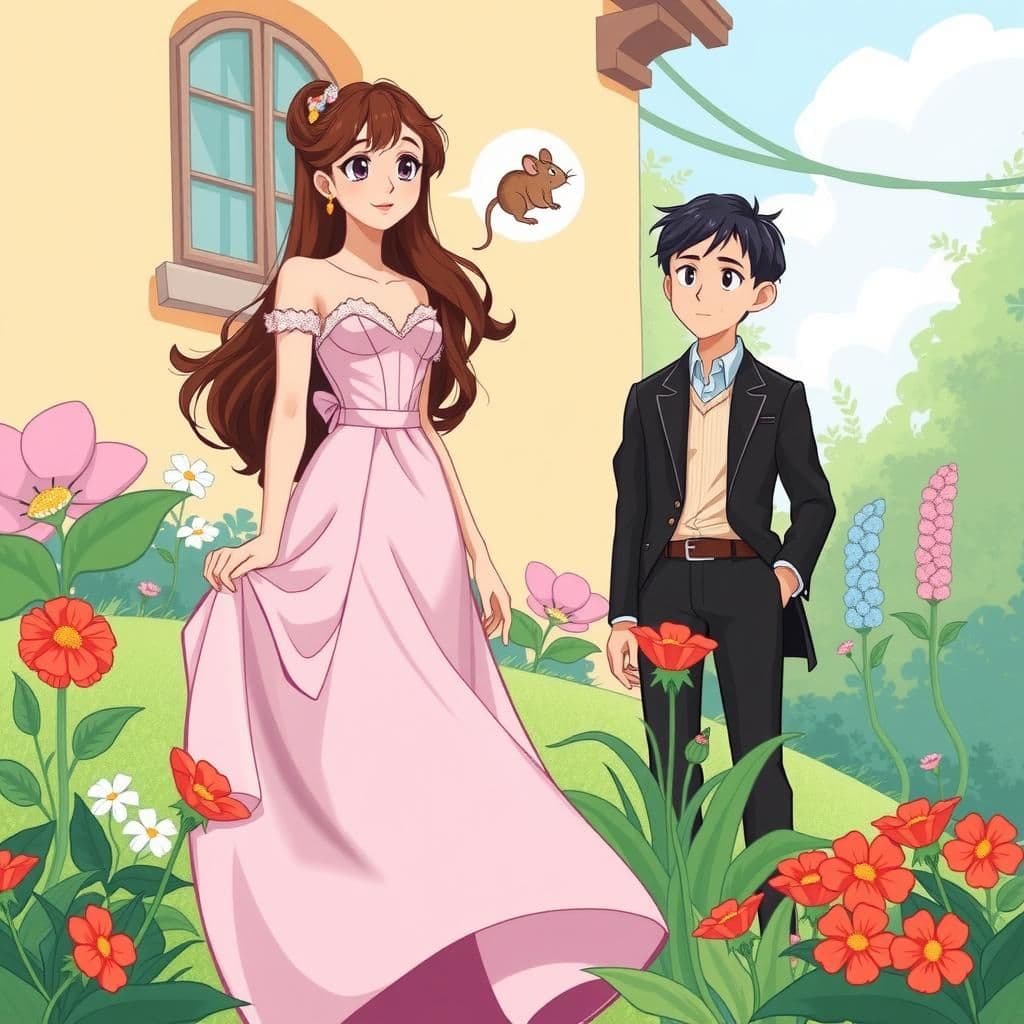The Various Delegation
In "The Various Delegation," the King of Wideout considers accepting the sovereignty of Wayoff and seeks to understand the sentiments of its people. When the Three Persons claim to represent the citizens, the King doubts their legitimacy and decides to consult Wayoff's renowned hogs, humorously discovering that the Three Persons are indeed the hogs themselves. This culturally significant moral story offers young readers a quick moral about the importance of genuine representation and understanding the true voice of a community.

Reveal Moral
"The story illustrates that true representation and leadership should consider the voices and perspectives of all stakeholders, even those who may be overlooked or underestimated."
You May Also Like

The Blotted Escutcheon and the Soiled Ermine
In "The Blotted Escutcheon and the Soiled Ermine," two figures confront societal judgment in this concise moral story. The Blotted Escutcheon defends his spotted appearance as a noble trait linked to his ancestry, while the Soiled Ermine embraces his inherent dirtiness, highlighting themes of identity and acceptance. This moral short story invites readers, especially kids, to reflect on the nature of self-worth and the judgments imposed by society.

A Transposition
In this humorous story with a moral, a Jackass and a rabbit engage in a debate over their sizes, each convinced the other is larger in their category. Seeking resolution, they turn to a clever Coyote who diplomatically affirms their claims, illustrating the folly of their misidentifications. Pleased with his wisdom, they decide to support him for a leadership position, leaving the outcome uncertain but highlighting a life-changing lesson on perspective and self-awareness.

The Cat and the Youth
In the captivating short story "The Cat and the Youth," a cat in love with a handsome young man asks Venus to transform her into a woman. However, when a mouse appears, her panic reveals her true nature, leading to the young man's rejection. This concise moral story illustrates that true identity cannot be hidden, making it a valuable lesson for students.
Quick Facts
- Age Group
- adultkidschildrenstory for class 2story for class 3story for class 4story for class 5story for class 6
- Theme
- AuthorityIdentityAbsurdity
- Characters
- The King of WideoutThe Spokesman of the Three PersonsThe Three PersonsHogs of Wayoff
Subscribe to Daily Stories
Get a new moral story in your inbox every day.